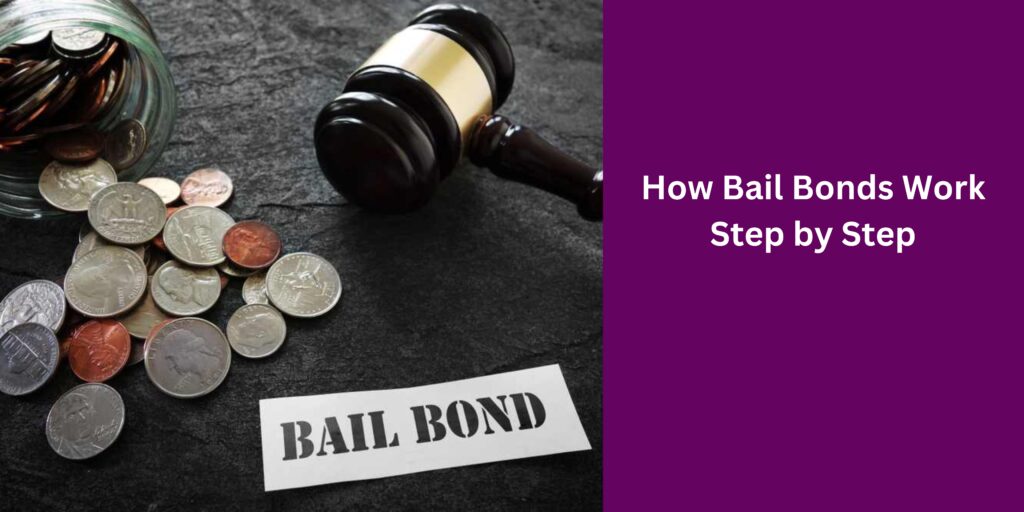
Bail Bonds: What They Are, How They Work, & Where to Get Them
Written on November 8, 2023. Posted In Bail Bond
The US legal system can be confusing, especially when a loved one is in jail. Bail bonds provide a helpful option in these situations, allowing someone to pay a fee to a bondsman who will pay the full bail amount to the court. This lets the person get out of jail until their trial.
Among the various facets of bail, bail bonds stand out as a vital instrument, offering a path for those unable to afford the full bail amount. As one of Atlanta’s best Bail Bonds companies, we’re here to help explain the intricacies of bail bonds, their operation, and how to procure them during pressing times.
What Is a Bail Bond?
A bail bond is a contractual agreement in which a defendant pays a bail bondsman a non-refundable fee (usually 10% of the bail amount) to pay the court the full bail amount set for the defendant. This allows the defendant to be released from jail until their court date.
If the defendant fails to show up for court, the bail bondsman is responsible for paying the full bail amount. A bail bond allows a defendant to avoid sitting in jail awaiting trial if they cannot afford to pay the full bail amount themselves.
Bail bonds provide an alternative to paying the entire bail amount upfront. A licensed bail bondsman essentially acts as a cosigner, providing a guarantee to the court that the defendant will appear.
Different Types of Bail Bonds
There are different types of bail bonds for different legal situations:
- Criminal Bonds: Used when someone is charged with a crime. This bond makes sure they show up for all court dates.
- Traffic Bonds: Used when someone breaks traffic laws. This bond makes sure they appear in court.
- Juvenile Bonds: Used for underage people. This bond understands the special rules for young people.
- Appeal Bonds: Used when someone appeals a conviction. This bond makes sure they stay throughout the appeal.
- Federal Bonds: Used for federal crimes. This bond makes sure they follow all court rules.
The right bail bond depends on the legal situation. Each type is designed to guarantee the person shows up to court. This helps the court system while supporting the accused person and their family.
Bond Vs Bail
It’s important to understand bail versus bond.
Bail is the full amount set by the court. It guarantees that the person will return for future court dates.
A bond allows someone to pay a smaller fee if they can’t afford the full bail. A bail bond company pays the full bail amount to the court for them.
With a bond, the bail bond company promises to pay the full bail to the court if the person doesn’t show up. In exchange, the person pays the bail bond company a smaller fee – usually 10% of the full bail amount. So bail is the full amount paid to the court, while a bond allows paying a fee to a company who pays the bail instead.
Bail Bond Example
Imagine Jane, arrested for a misdemeanor. The judge sets her bail at $5,000. Jane doesn’t have this amount readily available. She approaches a bail bond service, which agrees to vouch for her in court. In exchange, Jane pays a premium (typically 10-15% of the bail amount) to the service. The service then ensures Jane’s appearance in court. If Jane misses her court date, the bond service may use a bounty hunter to locate her, or they’ll be liable for the entire bail amount.
Getting a bail bond takes a few key steps:
Bail Amount Determination
Initially, a judge sets the bail amount based on the severity of the offense, the defendant’s previous criminal record, and the risk of the defendant fleeing. The judge has discretion in setting this amount, aiming to strike a balance between the defendant’s rights and the safety of the community.
Obtaining the Bail Bond
After the bail amount is determined, the defendant or their representative contacts a bail bond service. The bail bond company charges a fee (typically 10% of the total bail amount) and may require collateral, such as property or vehicles, to secure the bond.
Getting Released on Bail
Once the bail bond is posted, the defendant is released from custody. The defendant is then required to appear in court on the specified dates. If the defendant fails to appear, they may forfeit the bail and face additional charges.
The Advantage of Bail Bonds
Bail bonds offer more than just freedom from jail. They also provide:
Financial flexibility – Bail bonds only require paying a small fraction of the total bail amount. Many bail bond companies offer payment plans too. This makes bail possible even if someone can’t afford the full bail.
Guidance through the legal system – The law can be confusing and overwhelming. Bail bond agents are experts who help their clients understand what to do next. They explain the legal terms and rules. This support makes the process much easier.
So bail bonds don’t just get people out of jail. They also provide:
- Affordable payments compared to full bail
- Payment plans fitting different budgets
- Help understanding the complex legal system
This financial and guidance support is invaluable when dealing with the challenges of an unexpected legal situation. Bail bonds provide a reassuring hand to hold during the stressful process.
Frequently Asked Questions on Bail Bonds
What happens if the defendant doesn’t show up in court after securing a bail bond?
In such cases, the bail bond service may employ a bounty hunter to locate the defendant. If not found, the co-signer or the person who secured the bond is liable for the full bail amount. Learn more about what could happen here.
Do I get my money back after the trial?
The fee paid to a bail bond service is non-refundable. It’s the cost for their service of providing the bail bond.
What is collateral, and why is it needed?
Collateral is a form of security, usually an asset, which ensures the bail bond service is covered if the defendant fails to appear in court. It could be jewelry, property, or other valuables and is returned after the defendant meets all court obligations.
Free At Last Bail Bonds is Your Compassionate Partner in Trying Times
Bail bonds serve as a vital lifeline, offering more than just a financial reprieve. They are the keys to your temporary freedom, allowing you the chance to work on your case from the comfort of home. At Free At Last Bail Bonds, we understand the gravity of this period in your life, which is why we offer comprehensive services, including Criminal Bonds, Traffic Bonds, Juvenile Bonds, Appeal Bonds, and Federal Bonds, to help secure your prompt release from custody.
Choosing Free At Last Bail Bonds means choosing an ally who is committed to standing with you in your hour of need. Our expert team, available 24/7, isn’t just here to provide bail bonds; we’re here to offer the guidance and support you need to navigate this challenging time. Our approach isn’t just professional; it’s also deeply compassionate, understanding that behind every case is a human being in need of respect and support. With flexible payment plans and an unwavering commitment to our clients, we’re not just a service; we’re a partner in your pursuit of justice.
Don’t face these trying times alone. Let Free At Last be the guiding light in your moment of uncertainty. Contact us today, and take the first step toward reclaiming your freedom.


